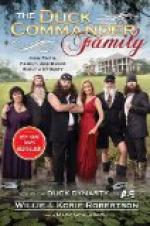A long interrogatory now followed, in which he had much ado to fence and parry many of the questions. He soon learned, to his deep grief and sorrow of heart, that John Clarke was under suspicion, if not already arrested under the charge of heresy. He admitted to have been much in his company, and to have attended his public lectures, his public preachings, and those meetings in his rooms for reading, meditation, and discussion, which had long been going on. These were well known by this time to the authorities; but only since the cardinal’s letter had stirred up suspicion and fear had there been any distrust aroused as to the nature of such meetings. A whisper here, a hint there, had lately gone abroad, and now Anthony was closely questioned as to the nature of the doctrines discussed, and the readings which had taken place.
He answered that no word had ever passed Master Clarke’s lips that was not godly, pious, and full of the Holy Ghost. He heeded not the angry looks of Dr. London and the commissary, but addressed himself to Dr. Higdon, who was evidently wishful to think as well as possible of one of the leading canons of his own college. Anthony strenuously denied that Clarke had had any hand in the distribution of forbidden books or translations of the Scriptures. When they read the Bible together, it was read both in the original and in the vulgar tongue, so that the two versions might be carefully studied together; and Dalaber maintained with spirit and success the arguments learned from Clarke that the Catholic Church in this land had never forbidden such reading and study of God’s Word. Dr. Higdon might have been satisfied, and even spoke a few words in favour of letting the young man go to his lodgings, only binding him over to appear when summoned in the future.
But the other two, having lost Garret, were resolved to make the most of his accomplice; and they argued that what Master Clarke had or had not said was not the main point at issue. He might or might not be the dangerous heretic some asserted. What they maintained was that Dalaber had been associated with Garret in a hundred ways, and that a great bale of forbidden books had been discovered in a secret hiding place just outside his deserted chamber at St. Alban Hall; and that, until he had given some better account of himself and his connection with these matters, he should certainly not be allowed to depart. Moreover, they desired to know the names of other students who had attended Master Clarke’s readings and discussions. These were known to have taken place; but as they were mostly held in the evening after dark, it was not so easy to discover who attended them, and Dalaber was required to give such names as he could remember.




